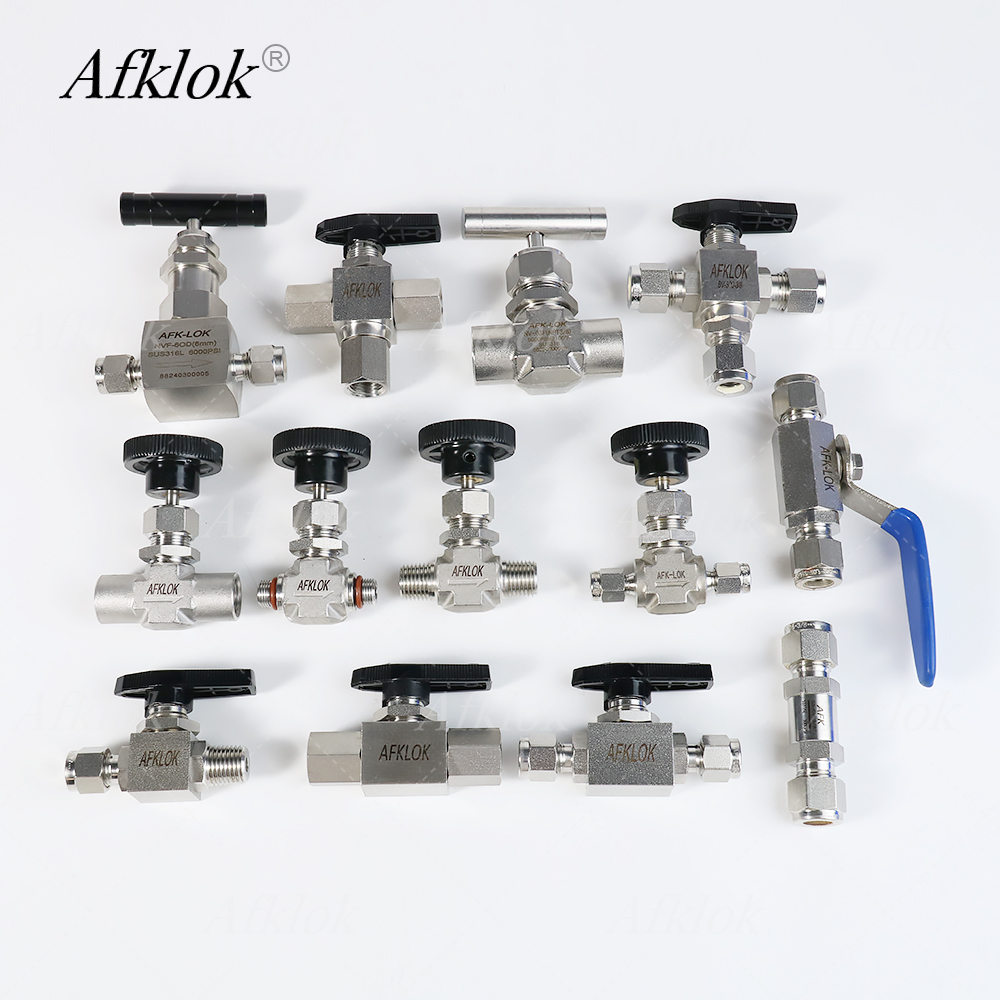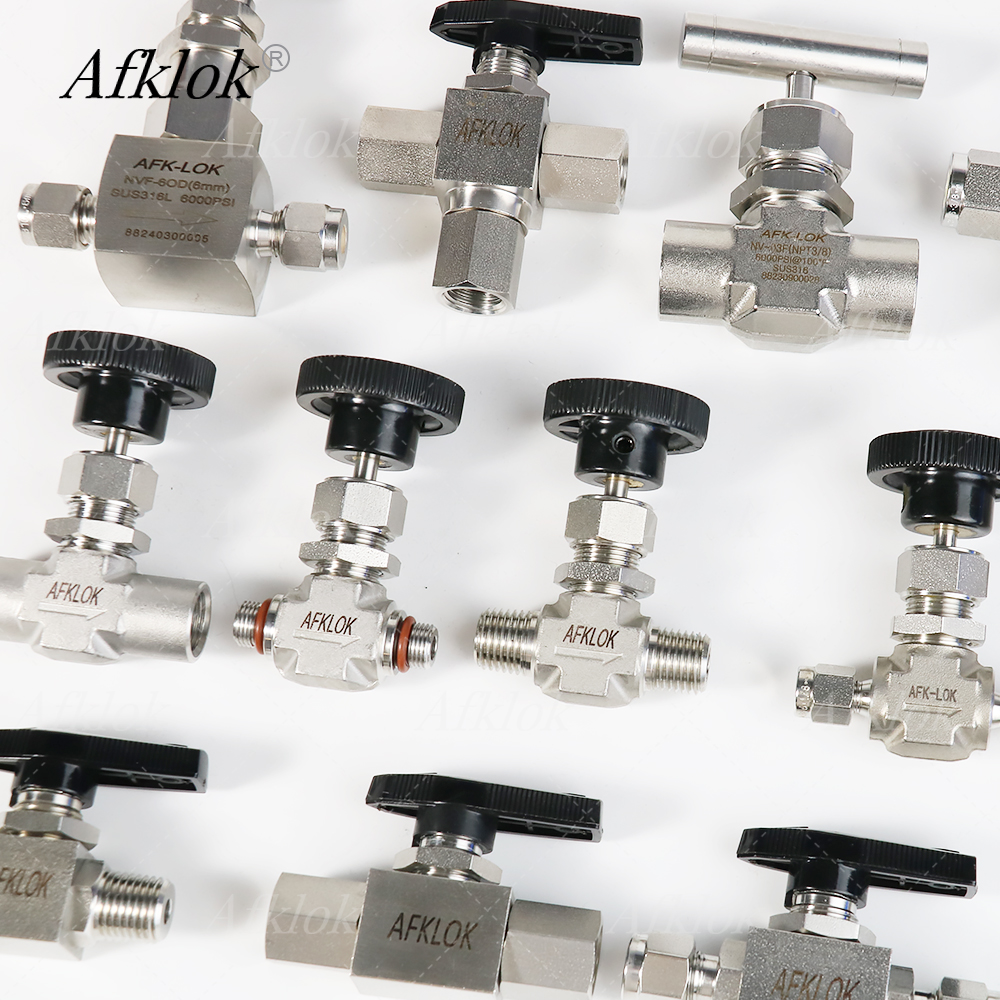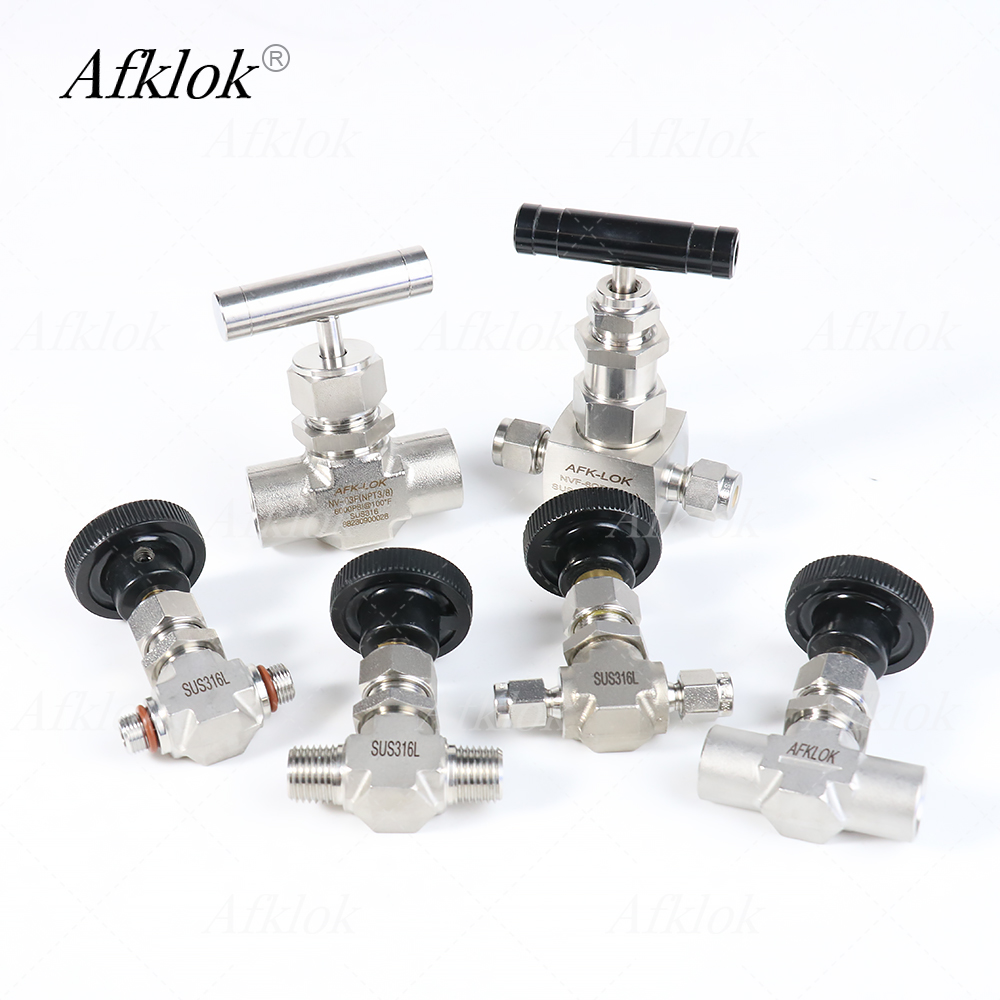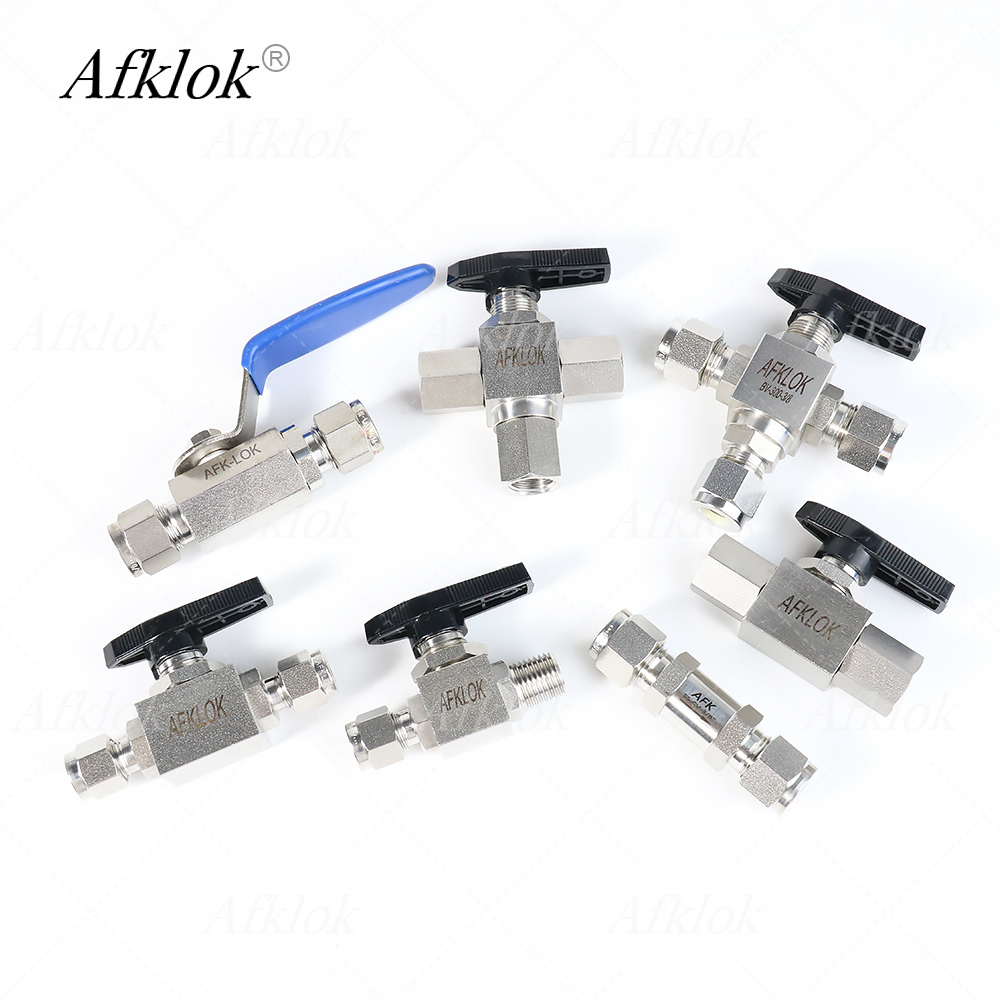In industry, petroleum, chemical industry and daily life, valves are key components for controlling fluid flow. Among them, needle valves and ball valves are two common types of valves, but they have significant differences in structure, function and application scenarios. This article will compare the characteristics of the two in detail, to help users make a more reasonable choice according to the actual needs.

1. Structural differences
Needle valve adopts conical needle valve spool, through the fine thread rotation to adjust the spool and seat clearance, so as to accurately control the flow. Its structure is complex, good sealing performance, suitable for high-precision flow adjustment occasions.
The core component of the ball valve is a ball with a through-hole, which can be opened and closed quickly by rotating the ball by 90 degrees. Its structure is simple, convenient operation, suitable for the need to quickly cut off or connect the fluid working conditions.

2. Functional characteristics
Flow control: Needle valves are suitable for fine adjustment of small flow, such as laboratory, instrumentation measurement and other scenarios; ball valves are mainly used for fully open or fully closed state, not for precise adjustment.
Sealing: Needle valves have better sealing and can withstand high-pressure environments; ball valves have good sealing when fully closed, but may wear out after long-term use.
Operation: Needle valves need to be adjusted by rotating the handle several times, while ball valves can be switched on and off by rotating 90 degrees only, which makes the operation quicker.
3. Application Scene
Needle valve: widely used in petrochemical, electric power system, laboratory instruments and other fields that require precise flow control.

Ball valves: commonly used in water supply and drainage systems, natural gas pipelines, HVAC and other occasions that require rapid cut-off of fluids.

4. Comparison of Advantages and Disadvantages
| Valve type | Advantages | Disadvantages |
| Needle Valve | High Precision Adjustment, Good Sealing | Slow Regulation, High Price |
| Ball Valve | Quick Opening And Closing, High Durability | Not Suitable for Fine Flow Control |
Expert Advice
Industry experts point out that when selecting a valve, the characteristics of the medium, pressure requirements and frequency of operation should be taken into account. If you need to accurately control the flow, needle valve is the ideal choice; if the pursuit of fast switching and durability, the ball valve is more advantageous.
With the development of industrial automation, smart valves are emerging, but the traditional needle valve and ball valve still occupy an important position because of its reliability and economy. Correct selection not only improves system efficiency, but also extends equipment life and reduces maintenance costs.
Post time: Mar-31-2025